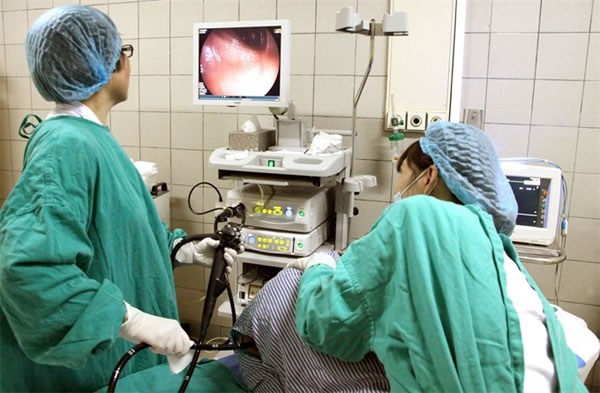VietNamNet Bridge – Test results at 38 central hospitals in Ha Noi have been mutually recognised since August 1, but the move seems to have done little to improve healthcare so far.

|
|
Doctors at Bach Mai Hospital’s Gastrointestinal Center in the capital city perform colonoscopy on a patient. — Photo: VNA/VNS |
Duong Duc Hung, Head of Integrated Planning Department under Bach Mai Hospital, said the hospital conducts millions of tests annually. The hospital is one of the 38 that is mutually recognizing tests, however only a few patient examinations and test results have been mutually recognised.
“To use the same test results, hospitals need to share common test standards. In reality, there are many hospitals at the same level transferring patients to Bach Mai Hospital without re-conducting tests as regulated by the Ministry of Health. This will help to save costs of treatment, transportation and even patients’ valuable time,” said Hung.
However, only some tests have stable results which do not require to be conducted again at other facilities. Complete blood count and liver enzymes, for example, are tests that need to be conducted before every medical examination. Doctors even need patients to retake blood tests, according to Hung.
“Doctors will decide whether to use test results released by other laboratories. In some cases, we have to conduct tests two to three times or consult independent facilities for clear results and good treatment regimens,” he added.
Put people’s health first
According to Luong Ngoc Khue, Head of Health Ministry’s Medical Service Administration, the mutual recognition of test results does not just aim to save treatment expenses, but prioritises the health of patients.
“Based on the patient’s condition, doctors are responsible for all decisions. For better diagnosis, treatment and supervision, they can ask to conduct tests several times,” Khue said.
Sharing the same concern, Nguyen Ngoc Hien, Deputy Director of Bach Mai Hospital said the Ministry of Health’s plan to mutually recognise test results could create favourable conditions for patients and reduce test costs. “Test results at any laboratory are important for a better understanding of a patient’s medical history,” Hien said.
In addition, Hien stressed the importance of mutual recognition of not only test results but also image analysis, supersonic results and even patients’ information.
According to Khue, there are about 50 ISO-15189 compliant laboratories at 40 central and provincial hospitals in Viet Nam. The Ministry of Health has developed criteria for biochemical, blood and microbiological tests applied among laboratories. This is a foundation for hospital and medical facilities to mutually recognise and use test results in treatments.
VNS
| related news |